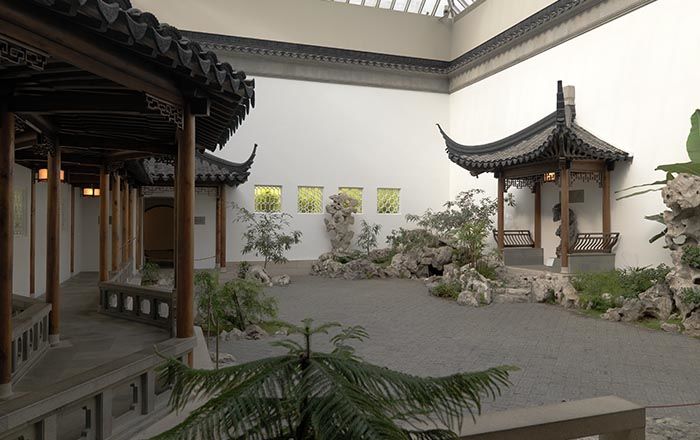Returned to lender The Met accepts temporary loans of art both for short-term exhibitions and for long-term display in its galleries.
Daikoku Pounding Mochi
Soga Shōhaku Japanese
Not on view
One of the Seven Lucky Gods of Good Fortune, Daikoku is a Japanese folk god of wealth. He was originally introduced to Japan as a member of the Buddhist pantheon, but along with Ebisu, became widely worshipped in the early Edo period as a god of success and happiness, particularly among merchants and urban commoners.
Shōhaku has painted Daikoku with his head covered in its usual black cloth and his sleeves rolled up, about to swing his enormous pestle into the rice in the round mortar. He is making mochi, a sticky rice paste prepared as a treat to celebrate the New Year. The spontaneous and brusque brushwork suggests that this work may have been created impromptu, with the artist surrounded by onlookers at a social gathering.
This image cannot be enlarged, viewed at full screen, or downloaded.
This artwork is meant to be viewed from right to left. Scroll left to view more.




